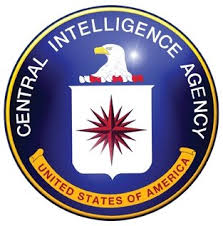
Last week, Attorney General Eric Holder announced the appointment of a special public prosecutor to investigate abuses committed in interrogations of terrorism suspects during the past administration of George Bush.
Holder made this decision, in spite of pressure from CIA Director Leon Panneta against launching a formal investigation and the reluctance of President Obama to use “the rear-view mirror,” regarding this subject. Although Holder first doubted the necessity of starting an investigation, the publication of secret reports, appearing days before his decision and graphically revealing serious abuses committed by CIA agents or their contractors, constituted the triggering factor.
The decision was not well-received. On one side, those in favor of creating a scenario in which the previous administration would be held responsible for their abuses, insist that this is a forceful step and that is it never just to fight in complete violation of the integrity of terrorism suspects. On the other side – since the beginning of the investigation –its opponents, many of them Republican, suggest the confrontation between the CIA and the Department of Justice is the last thing needed by a country besieged with multiple terrorist threats.
For those who believe the Obama administration is unconditionally determined to push its human rights agenda, the news is not entirely good. The same day that initiation of the investigation was announced, the Obama administration stated that centers of capture and interrogation outside the United States, instituted by the Bush administration, will continue operations. These centers have been criticized severely by activists who argue (with reason) that they are located in countries with very poor human rights records and weak to almost useless legal systems.
As if that were not enough, last week, the CIA announced that it will not deliver many of the documents on its detention and practices, which have been requested in order to carry out this investigation. The essential argument, as it reads in the 33-page declaration issued by this institution, is that “to make the CIA interrogation techniques public will probably degrade the ability of the American government to interrogate terrorist prisoners and to obtain necessary data to protect the American people.” Among the documents that the CIA does not want to release are the authorization that President Bush issued in September 2001, to secretly retain terrorism suspects; the text of the links between CIA officials and secret prison personnel from outside the U.S.; and finally, the evaluations sustained by CIA lawyers on the legality of stopping the program.
The results of this investigation take on even more importance after the revelation of the very questionable behavior of American advisers in the U.S. embassy in Afghanistan. If the judicial system cannot impose restrictions on the abuses generated by concentration of power, and if it cannot hold responsible those who have gone too far, then we will all be at the mercy of American power in every corner of the world. This could be worrying news for a country, which, like Colombia, has made the decision to increase American presence in its national territory, all this under a mantle of still highly questionable immunity.

Leave a Reply
You must be logged in to post a comment.